Known in ancient China as Yang Tao, the kiwifruit earned its place in Chinese culture not just for its flavor, but also its medicinal properties, which science has substantiated in areas such as digestive health and metabolic health.
The commercially grown varieties of kiwifruit can be “traced back to a Church of Scotland mission station in Yichang, China, in 1878.” It was also referred to as “Chinese gooseberry” before kiwifruit became its moniker.
Kiwifruit is named in honor of New Zealand’s native bird — the kiwi — by an enterprising food distributor, and its subsequent cultivation flew around the globe. Today, France, Italy, Greece and the U.S. are some of the biggest producers of kiwifruit, and interestingly, China is at the very top of the list. Kiwifruit is not only a scrumptious food, but is used to tenderize meats due to the compound actinidin.
Kiwifruit is both unique and surprising. While it’s small and has a light brown outer surface, the inside of the fruit is lime green, studded with tiny black seeds, and packed with a flavor similar to a strawberry or pineapple. Peeled, sliced and chilled, kiwifruit can be an excellent addition to any fruit salad combination or served by itself.
Health Benefits of Kiwifruit
Kiwifruit provides 92.7 milligrams of vitamin C, a nutrient that helps boost the immune system to stave off colds and scurvy, in every 100-gram serving. Its vitamin K amount is 40.3 micrograms — best known for its role in bone health and cardiovascular function.
Kiwifruits contain vitamin A (great for the skin, respiratory health and vision), vitamin E (for lowering the risk of platelet aggregation) and potassium to help balance the body’s electrolytes and manage blood pressure levels.
Kiwifruit is one of the few foods that contain vitamin B6, which supports the immune system. B6 is particularly important for pregnant mothers to support them throughout their gestation. The folate in kiwifruit, on the other hand, focuses more on the fetus. It may protect against neural tube defects and congenital heart disease.
You’ll find 3 grams of dietary fiber for every 100-gram serving of kiwifruit. Dietary fiber has been shown to help keep the digestive system running healthy, while reducing the risk of diseases such as diabetes, stroke and hypertension. Finally, the antioxidant power in kiwifruits may help neutralize free radicals that can damage cells.
Despite these benefits, be sure consume kiwifruit in moderation, as it contains fructose, which can be harmful to your health in excessive amounts. Below are more nutrition facts about this delicious fruit.
Kiwifruit Nutrition FactsServing Size: 3.5 ounces (100 grams), raw |
||
| Amt. Per Serving |
% Daily Value* |
|
| Calories | 83.07 | |
| Calories from Fat | ||
| Total Fat | 0.52 g | |
| Saturated Fat | 0.029 g | |
| Trans Fat | ||
| Cholesterol | 0 mg | |
| Sodium | 3 mg | |
| Total Carbohydrates | 14.66 g | |
| Dietary Fiber | 3 g | |
| Sugar | 8.99 g | |
| Protein | 1.14 g | |
| Vitamin A4 µg | Vitamin C | 92.7 mg |
| Calcium34 mg | Iron | 0.31 mg |
Studies on Kiwifruit
Research has shown kiwifruit to have a notable protective effect against asthma and other respiratory difficulties, such as wheezing. One report indicated that young children eating six to seven servings of kiwifruit and other vitamin C-rich foods per week had a 29.3% lower incidence of wheezing. Even those eating these foods only once or twice a week had fewer symptoms, in comparative studies.
Both the green and gold varieties of kiwifruit are rich in polyphenols, and were studied to compare their antioxidant strengths. Researchers found that not only were the kiwifruit antioxidants more potent than those in oranges and grapefruit, the gold kiwifruit variety was found to have greater antioxidant strength. Researchers concluded that kiwifruit consumption may be useful in reducing the development of diseases caused by oxidative stress.
Another study explored the effects of kiwifruit on patients with irritable bowel syndrome. The study involved 54 patients, 16 healthy individuals, kiwifruit consumption and placebos in a six-week study. Researchers found the colon transit time significantly decreased in the group consuming kiwifruit, and concluded that eating kiwifruit improved bowel function in adults diagnosed with irritable bowel syndrome.
Kiwifruit Fun Facts
Before the kiwifruit became its given name, other names, such as “melonette,” were considered. If the kiwifruits you bought are underripe, placing them in a brown paper bag for four to six days will help them ripen. Keeping them in a paper bag with an apple or a banana will speed up the ripening process even more.
Summary
Kiwifruits can legitimately be called a super fruit. This fuzzy brown powerhouse with bright green flesh contains vitamins A, K, E and B, potassium, folate and fiber. The health benefits kiwifruits provide translate into protection against heart disease and stroke, potential relief from asthma and irritable bowel syndrome, and support for pregnant mothers and their fetuses.
Originating in China, proliferated in New Zealand and now cultivated across the globe, kiwifruit is a sweet little fruit that expands the diversity of your fruit plate by its color, flavor and health advantages.

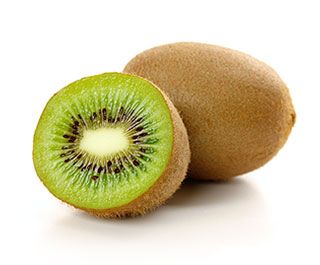
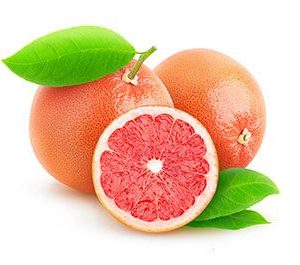
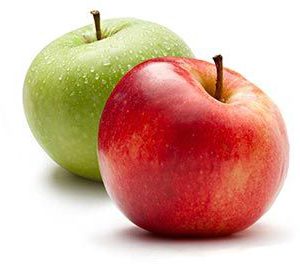
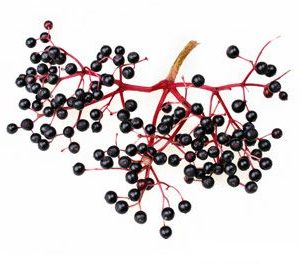
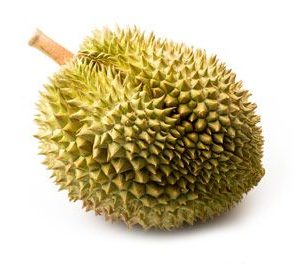
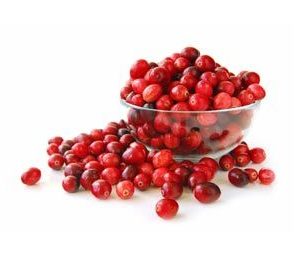
Reviews
There are no reviews yet.